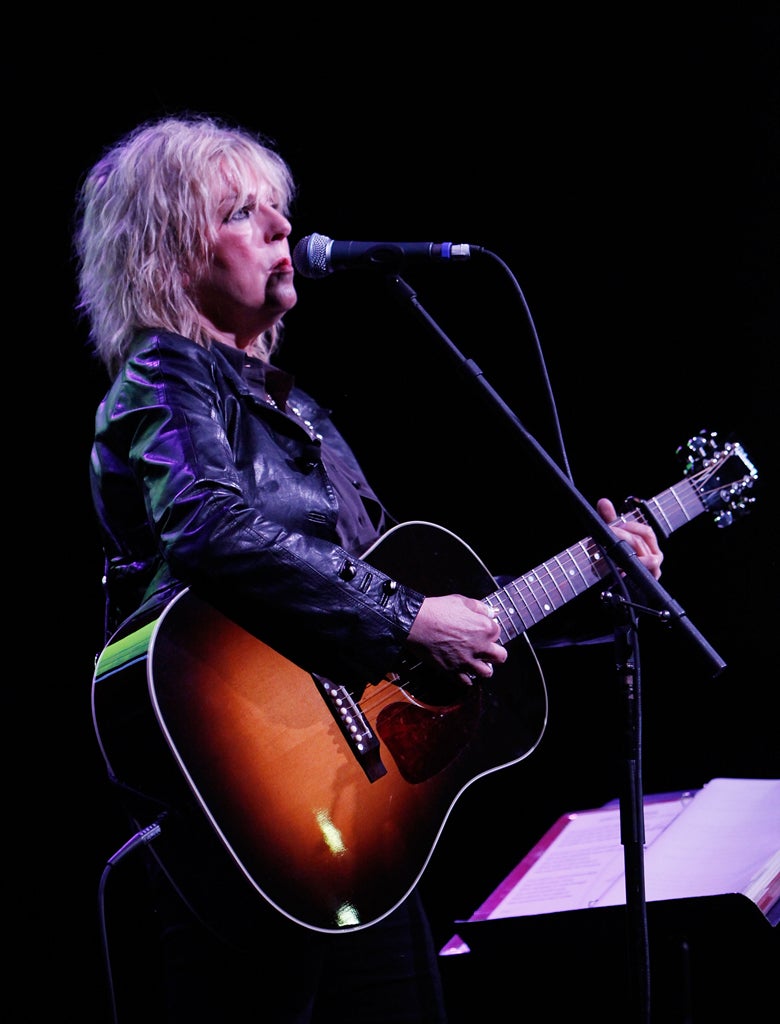Lucinda Williams, Royal Festival Hall, London
London Jazz Festival

“At least it weren’t jazz,” the woman behind me mutters gratefully at the end. Lucinda Williams has certainly been brought to the London Jazz Festival flying false colours.
The Chet Baker and John Coltrane records her poet dad Miller Williams left lying round all the houses the 59-year-old lived in during an itinerant childhood were early influences. Country blues and folk, though, were bigger bedrocks.
And by the time this late developer broke into the mainstream with her own voice, on the hit Car Wheels On A Gravel Road (1998), she was marrying country’s fatalism to rock’s hedonistic release. Splitting musical hairs doesn’t matter so much, anyway, when she’s singing.
Williams starts solo on acoustic guitar, bringing on long-time guitarist Doug Pettibone then bassist David Sutton and drummer Butch Norton as the set progresses. The cracked grain and solid depth to her voice is always at the service of each song’s emotion. “World Without Tears” sums up the world-view of a woman who’s lived life to the messy full. “How would a bruise find a face to lie upon?” she wonders of a cosmos not balanced by sadness, a condition she lingers on, sorrow by sorrow.
“It’s all really transcribed from the truth,” she explains of her writing. And if a bruise is a badge of feeling in Williams’ world, absence is felt as keenly as presence, as protagonists say the opposite of what they feel. “I Don’t Know How You’re Livin’” is the third song she’s written for a damaged brother who’s vanished from her radar. There’s something masochistically sacrificial about her own doomed affairs, as on the slow electric blues of “Born To Be Loved”, as spare and sultry as you can get at the Royal Festival Hall. She brings out the desolation of Bob Dylan’s 1997 “Tryin’ To Get To Heaven” without a syllable of affectation. When Williams sings it, it sounds as good as anything he’s written.
For much of the show, her band play steel guitar, double-bass and brushed drums, hanging together discreetly. In the home straight, she tries to cut loose. Even “Pineola”, about the death of a poet friend, is tough Southern truck-stop rock. “Essence” and “Honey Bee”, two hard-swinging, lusty female odes to semen, balance the loss elsewhere. But it’s the close looks at regret that haunt.
Subscribe to Independent Premium to bookmark this article
Want to bookmark your favourite articles and stories to read or reference later? Start your Independent Premium subscription today.

Join our commenting forum
Join thought-provoking conversations, follow other Independent readers and see their replies